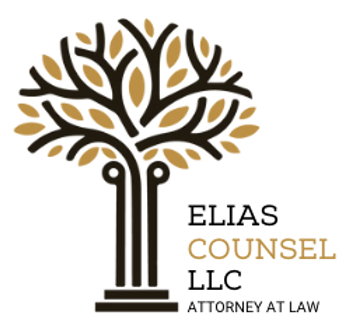Probate & Estate Administration in New Jersey
Guiding Families Through the Process-One Step at a Time
Probate can feel overwhelming-but you don't have to navigate it alone. At Elias Counsel LLC, we help Monroe Township families settle their loved ones' affairs with clarity, efficiency, and compassion. Whether you're the named executor or just trying to make sense of next steps, we'll walk you through what needs to happen, what deadlines apply, and how to avoid common pitfalls.
Our firm works with families throughout Middlesex County, including East Brunswick, Jamesburg, Old Bridge, and surrounding Central Jersey communities.
What to Expect When We Help You Administer an Estate
Here's what our probate clients can count on:
Step-by-Step Guidance from Start to Finish
We explain the full probate process up front-what's required, what's optional, and what to expect at each stage. From filing the will with the Surrogate's Court to distributing assets, we're with you at every step.
Support with Legal Filings, Deadlines & Court Communication
We prepare and file the necessary documents, help you obtain Letters Testamentary or Administration, and communicate with the Middlesex County Surrogate's Court on your behalf. We also keep track of required notices and timelines so nothing falls through the cracks.
Help Navigating Asset Distribution & Debts
We assist executors and administrators with gathering assets, paying final bills, addressing taxes, and distributing inheritances properly. Whether it's real estate, retirement accounts, or personal items-we'll make sure everything is handled correctly and legally.
Responsive, Respectful Support During a Difficult Time
We know probate often follows a loss. That's why we keep the process respectful and human-no judgment, no pressure, just honest help when you need it most. Attorney Adam Elias is known for being calm, personable, and thorough.
What Is Probate in New Jersey?
Probate is the legal process used to settle someone's affairs after they die. If the person had a will, the Surrogate's Court ensures it's valid and oversees the executor's actions. If there's no will, the court appoints an administrator to handle the estate.
In New Jersey, probate typically takes place in the county where the decedent lived-like the Middlesex County Surrogate's Court in New Brunswick. The court oversees matters like:
Validating the will
Appointing an executor or administrator
Notifying beneficiaries and creditors
Distributing assets
Resolving disputes (if they arise)

Do All Estates Go Through Probate?
Not necessarily. Some assets-like joint accounts, life insurance with named beneficiaries, or property held in a trust-can bypass probate entirely. We help families understand what needs to go through probate and what can transfer directly.
Even if probate isn't required, there's still often a legal process for settling debts and transferring ownership. We help simplify it all.
Common Probate Concerns We Help With
What if there's no will?
What if a family member is disputing the will?
What if the estate includes out-of-state property?
How long will this take, and what does it cost?
What happens if I make a mistake as executor?
We've handled it all-and we'll help you avoid delays, disputes, and unnecessary stress.
FAQs About Probate in New Jersey
How long does probate take in NJ?
Most estates take 6-12 months to complete, depending on size, complexity, and whether there are disputes. Simpler estates can sometimes move faster.
What happens if someone dies without a will?
Learn more about dying without a willThe estate goes through intestate administration. The Surrogate's Court appoints an administrator (usually a spouse or next of kin), and assets are distributed according to state law-not personal preference.
Can I be held personally liable as executor?
You can be-but we help you follow all legal steps to reduce that risk. That includes proper notices, tax filings, and fair distributions.
Do I need a lawyer to go through probate?
Not always-but most executors find it helpful. We simplify the process, prevent mistakes, and act as a buffer between you and court bureaucracy.
What's the difference between probate and estate administration?
Explore our Estate Planning servicesProbate refers specifically to validating a will through court. Estate administration is broader-it includes all the steps involved in settling someone's affairs, whether or not there's a will.
